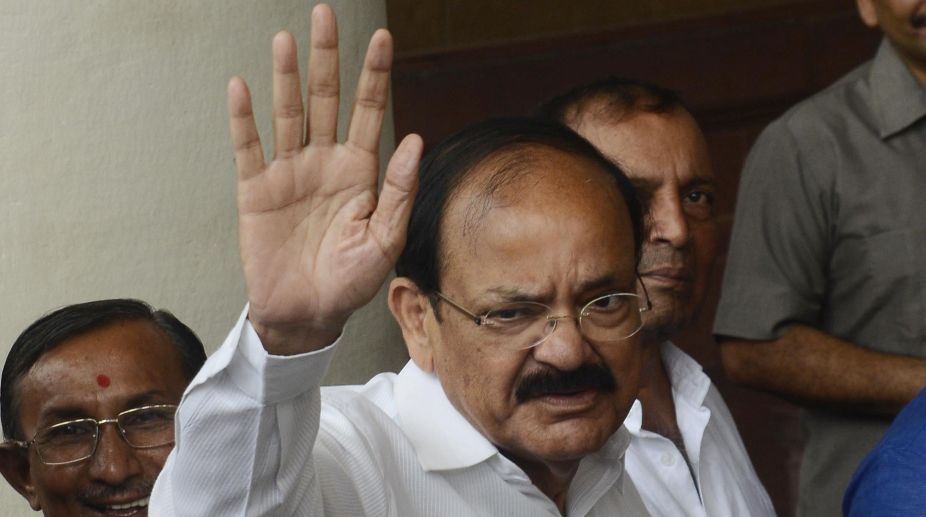Waqf power at work
New battle-lines are being drawn in Parliament, and out of it, with waqf and its management at the centre of a major political slugfest.

Venkaiah Naidu (PHOTO: Subrata Dutta)
Strip away the praise, admiring accolades and “goody-goody” stuff that is customary on a formal stage ~ there was distinct “needle” to the farewell flourish of Mohd. Hamid Ansari as he exited the office of the Vice-President.
And it “hurt” enough for his successor to join issue on the apprehensions of the minority communities. With the
Prime Minister opting for a stoic silence on the thorny issue, M Venkaiah Naidu’s jumping into the fray has some worrisome suggestions ~ that the BJP’s “tallest leader” from the South still deems himself a saffron-loyalist despite having severed formal links with the party.
Advertisement
That does not augur too well for his handling of the Rajya Sabha. After all, if “well begun is halfdone” the opposite also holds true. Add to that Narendra Modi’s alerting BJP members of the Upper House that their days of truancy are over now that party president Amit Shah has been admitted to the red-carpeted chamber (an adverse reflection on Arun Jaitley, Ananth Kumar and Mukhtar Abbas Naqvi?) and a message can easily be discerned.
Advertisement
The hour of robust tactics has dawned on the forum once projected as a venue for cool reflection, in some contrast to the heat in the other House.
Clearly the climate-change has been triggered by the way the numbers crunch. There would be some validity to the criticism that members of minority communities who attain positions of authority are reluctant to “talk community”
when they have the full weight of their office behind them, and open up only when in the departures lounges.
Yet in his last few speeches, and an interview to the TV channel over which he presided, the former Vice-President touched on many of the issues that had earlier been highlighted by Pranab Mukherjee.
Going even farther on the “intolerance” front and reducing it to the level of political and parliamentary reality when asserting that “democracy can become a tyranny if Opposition parties are not allowed to criticise government policies.”
An echo of Mukherjee’s frequent hailing of Amartya Sen’s admiration of the “Argumentative Indian”.
The tendency of the ruling party to reject any contrary viewpoint was quickly articulated by Venkaiah Naidu who, without naming names, declared that, “some people are saying minorities are insecure.
It is political propaganda. Compared to the entire world minorities are more safe and secure in India and they get their due”.
And in an apparent reference to his predecessor, “they got in prominent positions, including Constitutional responsibilities because there is no discrimination, and also on account of merit.”
He laid emphasis on “appeasement for none, justice for all”. Problem is that there is much subjectivity to both “appeasement” and “justice”.
Advertisement